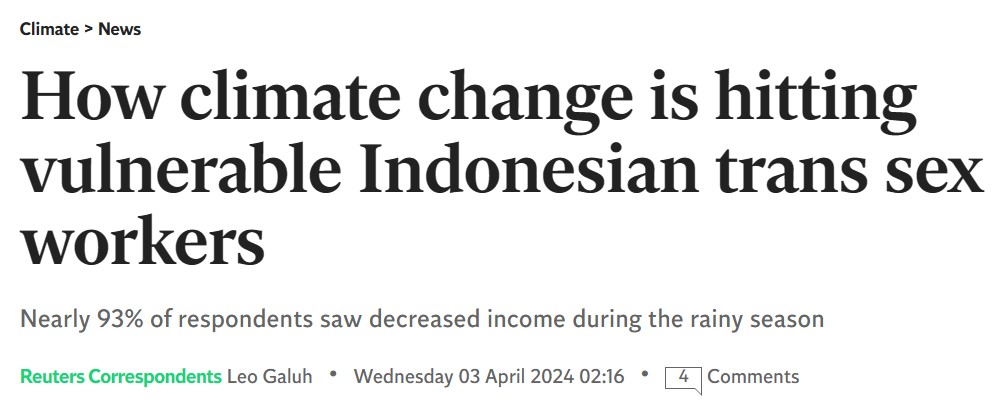


Earlier I wrote about a "global warming" group that writes -- invents -- fake "news" stories about how global warming affects Real People Living Real Lives and plants them in the lazy, leftwing Gaslight Media.
Just the News highlighted one of their Fake Stories, released just in time for Easter -- global warming is making chocolate more expensive! Please like and share!
Ahead of the Easter weekend, multiple media outlets reported that chocolate prices are soaring, and according to the coverage, the main culprit driving the inflating costs is climate change.
Across multiple platforms, the reports followed a similar message, using similar language to describe the problem and its causes -- and the reports all came out the same week.
"Easter egg prices soar as cocoa crops are hit by climate crisis and exploitation," the Guardian reported on Good Friday. The article blames the shortage of cocoa, which is used to make chocolate, on rising prices of fertilizers, deforestation, illegal mining practices and "extreme weather events."
Spoiler: This is all made up. Just the News checked the easily-found data and reports that cocoa yields are up, not down, in the recent past.
[The "journalist" responsible for this propaganda lie] didn't respond to questions if he was aware of this data or if he ever sought it out.
The Guardian, NPR and The Conversation are among the hundreds of media outlets associated with or listed as partners with an organization called Covering Climate Now (CCN), which encourages reporters to insert "climate crisis" narratives into all their stories.
Covering Climate Now boasts partnerships with hundreds of major media outlets across the world. According to CCN, its partners have a combined audience of 2 billion people -- one-fourth of the globe's population -- in 57 countries.
The group provides advice to reporters on all beats to not only insert a "climate crisis" narrative into every beat, but also how to cover the topic. This includes telling journalists not to platform what it calls "denialists," which includes anyone who "ridicules" climate activists or suggests that climate change is not producing a global emergency.
The site is full of tips on what language to use, how to write headlines and suggested stories for journalists to cover, all in line with an anti-fossil [fuel] message....
...
The organization encourages reporters to make statements attributing "extreme weather" to climate change, even in the absence of any data to support the claims.
"Even in the absence of explicit attribution data, it's accurate to say that climate change is making extreme weather more common and more severe," CCN tells its partnered media organizations. It then provides tips for language journalists can use to blame "extreme weather" on climate change for any story.
They're seriously telling "journalists" to just make up climate panic stories, even when they have absolutely no evidence.
I'm sure the "journalists" were already inclined to do so, but now they have "Experts" telling them that it's ethical to just make up political lies.
I mention this because, courtesy of Matt Walsh, I think I've found another fake story suggested by this group.
You're no doubt wondering if this is a prank.
This ain't no prank, Jack!
Published April 3rd. Not April 1st.
Joya Patiha, a 43-year-old Indonesian transgender woman, first started to notice that changing weather patterns in the mountain-ringed city of Bandung were affecting her income as a sex worker a decade ago.
The rainy season was lasting longer across the West Java province, winds were stronger and in some particularly bad years Patiha lost up to 80% of her earnings.
Trans women like Patiha are among the most affected by extreme weather linked to climate change, as well as suffering disproportionately when disasters strike.
"No one is coming out during the longer rainy season," said Patiha. "It is very hard to make money during that unpredictable weather."
Indonesia is particularly vulnerable to the effects of climate change, and trans women, who tend to face more stigma and marginalisation than trans men or other LGBTQ+ Indonesians, are also among those hardest hit by extreme weather.
They said the thing! They said the thing!
That's because many trans women, like Patiha, are shut out of the formal economy and survive as buskers and sex workers, occupations that rely on them being able to solicit clients outdoors.
Sherly Wijayanto, a 28-year-old trans woman from the capital Jakarta, worked as a busker for around seven years until the increasingly volatile weather made her seek other options.
"I no longer want to endure the heat and rain on the streets," said Wijayanto, who joined trans-led arts group Sanggar Seroja, where she now sings with the theatre company and runs the social media channel.
According to the The Independent, it's a bad thing that a prostitute has left prostitution for a career in the theater.
What the hell am I saying? It's all made up!
As well as seeking to adapt their precarious livelihoods to the new climate reality, these women and the groups that support them are also seeking to raise awareness of the challenges posed by extreme weather in a nation composed of more than 17,000 islands.
Despite gender-fluid communities being historically accepted in Indonesia, a rising tide of conservative Islam in the world's largest Muslim-majority country has fuelled anti-LGBTQ+ persecution.
"Those outside the binary category are often labelled with the category 'deviant', (and) associated with the causes of environmental problems and disasters," said Darmawan, who has researched how climate change affects trans Indonesians.
None of this is true. None.
